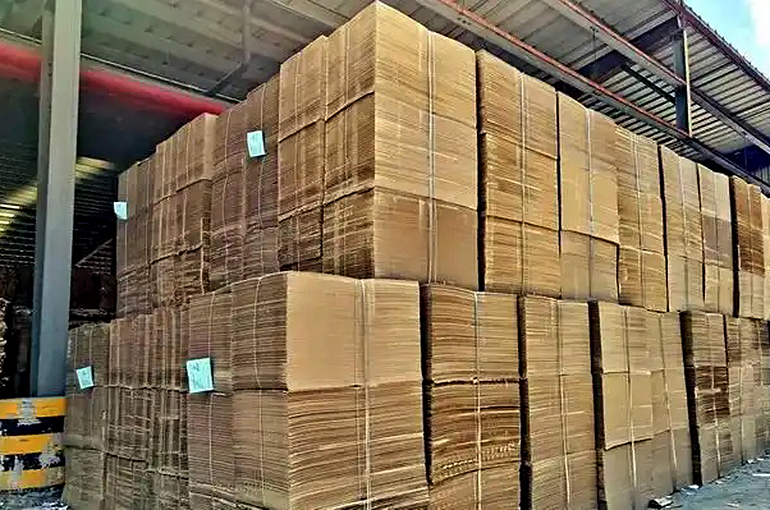 China Issues New Rules for Recycled Pulp Importers to Curb Import of Disguised Foreign Garbage
China Issues New Rules for Recycled Pulp Importers to Curb Import of Disguised Foreign Garbage(Yicai) Oct. 10 -- China has made it mandatory for importers of recycled paper pulp to specify if the materials were produced using a dry or wet method in an effort to curb imports of disguised foreign garbage that poses serious environmental and health risks in the country.
Importers or agents must specify if the recycled pulp was produced using a dry method or a wet method in a remark column of the customs declaration forms, the General Administration of Customs of China announced late yesterday. The move aims to standardize the declaration management and strengthen supervision of such imports.
Standard waste paper pulp production requires purification processes, including removing impurities and screening in liquid conditions of waste paper, followed by concentration, steam treatment, and high-temperature drying to produce waste paper pulp, said Xu Feng, a professor at Beijing Forestry University's College of Material Science and Technology.
Recycled pulp boards produced through these processes contain over 91.5 percent fiber and almost no impurities, while the high-temperature drying process achieves sterilization, meeting hygiene standards, Xu noted.
But in the dry-milled pulp production process, waste paper is crushed into fragments through a shredder and then packed for import, omitting 95 percent of the purification processes, Xu said. It contains plastic fragments and heavy metal pollutants, thus constituting disguised "foreign garbage" imports that pose serious environmental and health risks, Xu added.
The dry method essentially crushes and packages solid waste from abroad into recycled pulp for import, posing significant environmental risks, industry experts told Yicai. The inspection of imported recycled pulp was insufficient, so dry-milled pulp often passed through customs under the guise of recycled pulp, they said.
Customs in many Chinese areas have seized and returned solid waste imported as recycled pulp in recent years, the experts pointed out.
Attaching the label of dry method, equal to high risk, is expected to curb the entry of dry-milled pulp to China in the short term, but the long-term effect depends on the enforcement intensity of the new rules and other supporting measures, the experts added.
After the new regulations kick in, some companies that rely on low-cost dry-milled pulp may face a jump in raw material costs and pressure to adjust production, so they must find alternative raw materials or upgrade their production processes.
Editor: Martin Kadiev